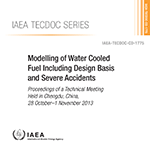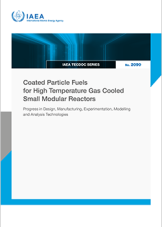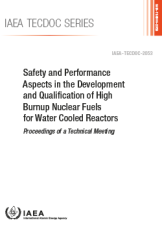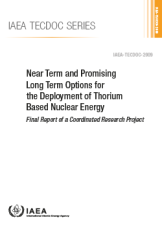Modelling of Water Cooled Fuel Including Design Basis and Severe Accidents
IAEA-TECDOC-CD-1775
ISBN
978-92-0-158615-5
381 pages | 231 figures | € 18.00 | Date published: 2015
Nuclear fuel performance and management play an essential role in ensuring safety, competitiveness and public acceptance of nuclear power. Reliability of fuel depends on its proper design, manufacturing, and ability to withstand required normal operational conditions, as well as possible accidents. In-reactor loads on the core materials are extremely high, which defines a need for detailed R&D as a basis for prediction of in-pile fuel behaviour. The Fukushima Daiichi accident has demonstrated the need for adequate analysis of all aspects of fuel performance to prevent a failure, and also to mitigate consequences if an accident occurs. In order to satisfy these demands, new national and international programmes have been launched and advanced modelling codes have been developed. The experience and lessons learned during three sessions of an IAEA technical meeting on modelling of water cooled fuel, including design basis and severe accidents are presented in this publication.
Keywords:
Fuel Fabrication and Performance, Nuclear Accidents, Modelling of Fuel Behaviour, Nuclear Reactors, Fuel Cycles, Nuclear Fuels, Water Cooled Reactors, Steady State, Transient Conditions, Nuclear Safety, Safety Analysis, Fukushima Daiichi



